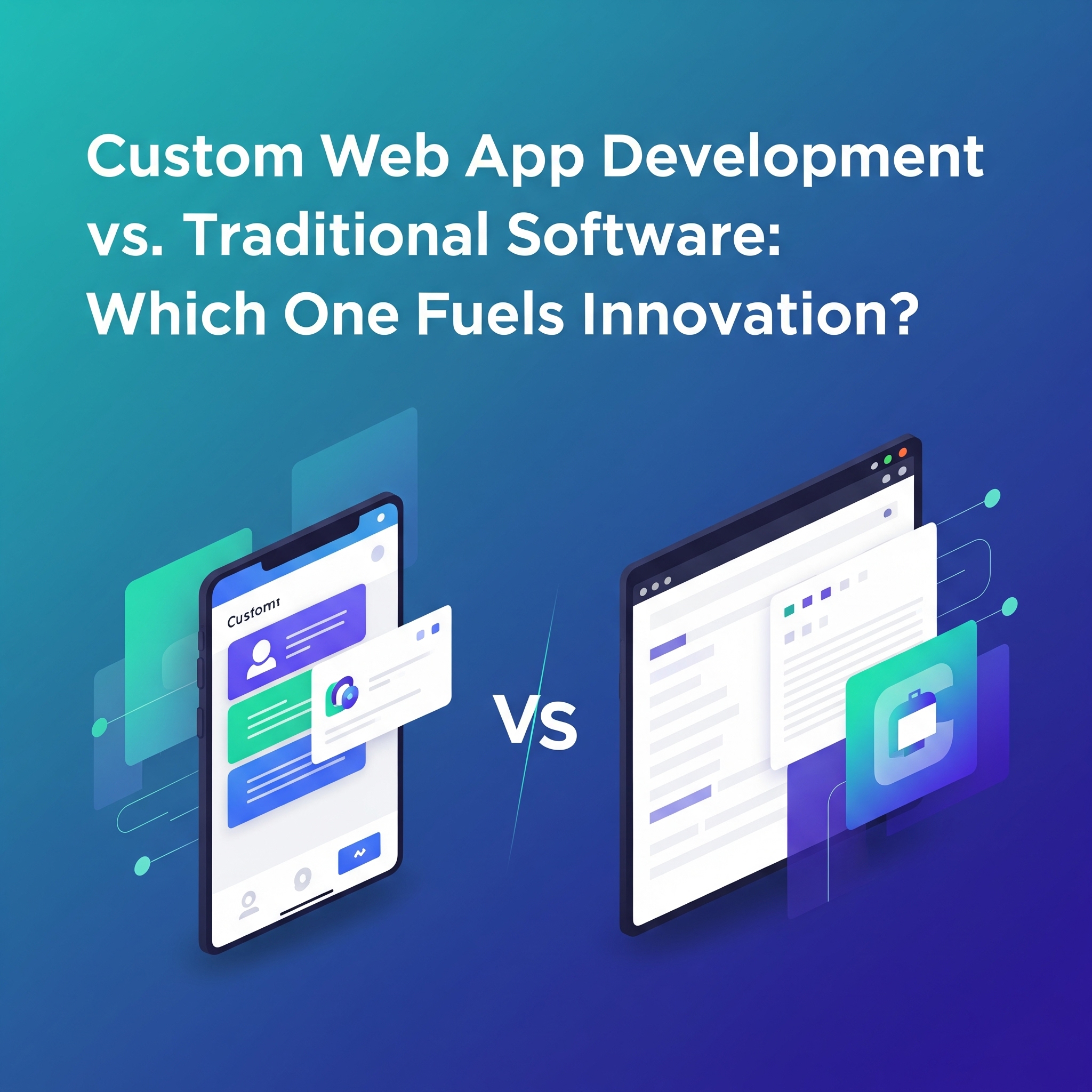In a digital-first world, businesses are racing to innovate — but the tools they choose can either unlock potential or limit progress. When it comes to building modern solutions, the debate is heating up: custom web app development services vs. traditional software — which one truly drives innovation?
Whether you’re a startup aiming to disrupt an industry or an enterprise looking to streamline internal operations, choosing the right development approach is crucial. Let’s explore how each method stacks up in the age of agility, cloud computing, and on-demand scalability.
The Rise of Custom Web App Development
Custom web app development has surged as companies demand tailor-made digital experiences. Unlike off-the-shelf software or bulky desktop applications, custom web apps are designed to work directly in browsers, on any device, with no installation hassles.
But it’s not just about convenience — it’s about competitive advantage.
Why Custom Web Apps Are Winning Hearts
-
Tailored to Business Needs: Custom web applications are built from the ground up, meaning every feature, design element, and functionality is aligned with your specific goals.
-
Scalability On-Demand: As your business grows, your web app can grow with it — no version limits, no forced upgrades.
-
Cloud-Native Flexibility: Modern custom apps leverage cloud technologies, allowing for real-time collaboration, remote access, and minimal downtime.
-
User-Centric Design: With the rise of UX/UI design in web development, businesses can ensure that every click leads to conversion.
Traditional Software: Still Relevant, But Holding Innovation Back?
Traditional software, often built as desktop or on-premise applications, has served businesses for decades. Think of enterprise ERP systems or legacy CRMs — they’re robust, secure, and (mostly) reliable.
However, as digital transformation accelerates, traditional software faces real challenges:
-
Limited Accessibility: Users must often install the software on specific devices or networks, creating barriers in a hybrid work environment.
-
Slow Update Cycles: Innovation in traditional software is slower due to longer development and release timelines.
-
High Maintenance: Ongoing maintenance, updates, and bug fixes often require in-house IT resources or third-party vendors.
Key Differences That Impact Innovation
| Feature | Custom Web App Development | Traditional Software |
|---|---|---|
| Deployment | Cloud-based, browser accessible | Installed on devices |
| Flexibility | Highly customizable | Limited by vendor specs |
| Scalability | Easily scalable with business needs | Often rigid and expensive to scale |
| User Access | Available 24/7, anywhere | Limited to specific systems/networks |
| Innovation Speed | Rapid iteration and deployment | Slower release cycles |
How Custom Web App Development Fuels Innovation
When you hire web app development teams that specialize in agile practices, you’re tapping into a whole new world of possibilities:
1. Rapid Prototyping & Feedback Loops
With custom web apps, businesses can launch MVPs (Minimum Viable Products) in weeks — not months. This allows real users to provide feedback early, shaping the product’s direction and avoiding wasted effort.
2. Real-Time Data and Analytics
Custom web apps can be built with integrated analytics dashboards, providing real-time insights. This empowers teams to make data-driven decisions instantly — something legacy software often lacks.
3. Integration with Modern Tools
From CRMs and ERPs to AI-powered chatbots and payment gateways — web apps are designed to integrate with virtually anything, future-proofing your digital ecosystem.
When Should You Choose Traditional Software?
To be fair, there are scenarios where traditional software makes sense:
-
High-security environments: Certain government or defense operations may prefer offline, tightly controlled software.
-
Legacy system compatibility: If your business relies on legacy hardware or internal networks, transitioning to web apps might be cost-prohibitive in the short term.
But for the vast majority of businesses today — from e-commerce to education — traditional software often feels like driving a manual car in an electric future.
Hiring the Right Web App Development Partner
To truly harness the benefits of web apps, businesses must hire web app development teams that understand both tech and strategy. Not all developers are equal — some build pretty apps, others build smart ones.
Here’s what to look for:
-
Experience in your industry
-
Mastery of latest web development frameworks
-
Focus on performance, security, and UX
-
Post-launch support and iteration planning
Partnering with the right custom web app development services provider can be the difference between an app that impresses — and one that truly innovates.
Conclusion: Web Apps Are the Future of Innovation
While traditional software will always have its place in specific contexts — particularly in industries that require offline capabilities or rely heavily on legacy systems — the tide is unmistakably turning toward more agile, scalable, and user-centric solutions. We’re witnessing a profound shift in how businesses perceive digital tools. In today’s competitive landscape, where customer expectations evolve rapidly and the need for instant access to services is non-negotiable, relying solely on rigid, outdated software models can significantly limit a company’s ability to grow and adapt.
Organizations that embrace custom web app development services are discovering new avenues for innovation, efficiency, and differentiation. Unlike traditional software that often demands workarounds or compromises, custom web apps are designed to empower. They give businesses full control over their digital experience — from how data flows, to how users interact, to how quickly new features can be rolled out in response to market changes.
